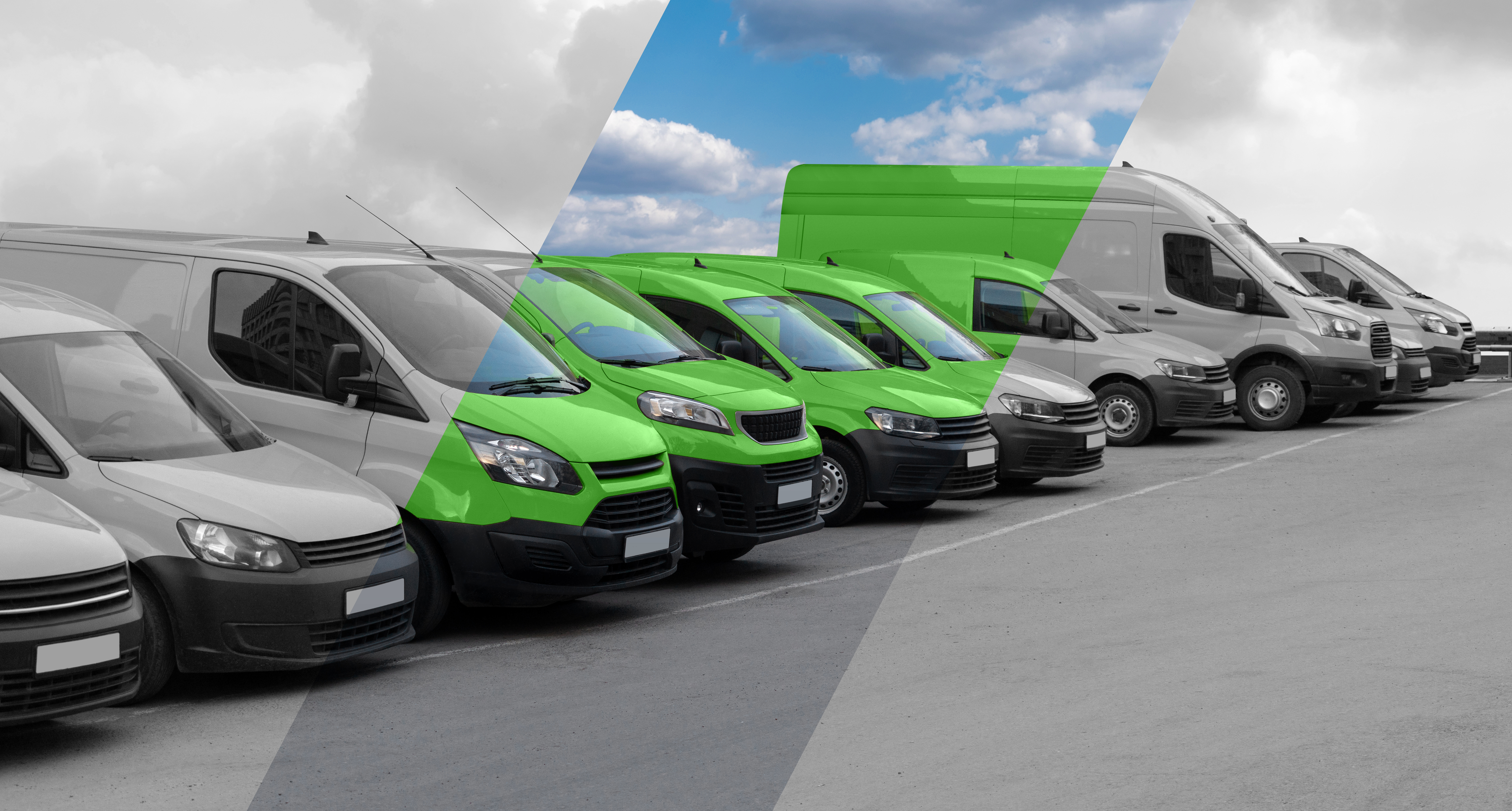
Creating a blueprint for decarbonising local authority fleets
To ensure its operations achieve net zero by 2030, Costain worked with Swindon Borough Council to develop a strategy to transition its entire fleet to zero-emission vehicles
Summary
Many local authorities have set a target to decarbonise their operational vehicle fleets by 2030, but how do they make that transition within challenging deadlines, will the technology be there in time, what kind of infrastructure do they need to support their future fleet, and what does the cost and shape of that pathway to net zero look like?
Our strategy for Swindon Borough Council drew upon our long history of delivering safe and successful schemes within local authorities as well as fleet decarbonisation projects. At the outset, our focus was on finding the most viable technical and economical route for the council to transition their entire fleet operations to zero emissions alternatives, without affecting service provision.
The key benefits of our work can be summarised as below:
- We established a clear roadmap that defined transitional milestones across the timeframe inclusive of phased infrastructure development and the economic pathway to deliver a zero emissions fleet.
- We shaped, created and produced the strategy within eight weeks as – given the challenging deadlines, scale and diversity of vehicles and operations – time was of the essence.
- Our findings project 100% zero tailpipe emitting fleet operations by 2030.
- In most scenarios, cost of ownership modelling demonstrated that over a 15-year period, the transition to battery electric technology was a cost-effective alternative to diesel.
Our programme for achieving this was built into four distinct stages.
Stage 1: Current and future fleet analysis
Swindon Borough Council operates a diverse fleet of almost 300 vehicles, from cars and light commercial vans through to HGVs, refuse collection vehicles, gritters and tractors. It was important to have a thorough understanding of their operational utilisation, maintenance and procurement lifecycles. As well as gathering telematics and usage data, we spent several days at their depot to fully understand the current fleet, its supporting infrastructure and how this could be built upon for the future. Qualitative research was undertaken with key stakeholders to clearly understand the needs of the council’s fleet operators, maintainers and end users.
We defined the Zero Emissions Vehicle (ZEV) technology options that best matched the council’s operational requirements. Battery and hydrogen fuel cell electric vehicle technology were considered, as well as interim technologies such as retrofitting vehicles and biofuels. Our research covered technology already available, alongside any expected to emerge within the transitional timeframe.
We added value by reviewing the strategies and plans of neighbouring authorities. This ensured we aligned our recommendations with others and helped identify synergies for mutual benefit as we all work to achieve net zero. For example, given the premium associated with battery electric vehicles and the potential demand across the rest of the decade, there could be benefit in collaborating with like-minded councils with similar needs and timeframes to secure more competitive pricing for larger scale orders.
Stage 2: Investigating the infrastructure options to power and maintain the future fleet
Based on the findings from stage one, we undertook a detailed depot analysis to understand the potential of Swindon’s existing site to support the future fleet and any upgrades which may be needed. This included evaluating the available electrical capacity to support the phased transition to electric vehicles, the layout of parking facilities, and an onsite energy generation and storage assessment. By doing so, we were able to identify the best and most cost-effective charging and refuelling options to match the council’s operational needs. Further factors included considering the requirement for energy monitoring and charging management software and if these could be integrated within the existing fleet software.
Stage 3: Cost of transitioning and funding options
Using our total cost of ownership modelling tool, we evaluated the economic viability of the identified transition options across the timeframe. For example, the total cost of ownership analysis for refuse collection vehicles included five technology transition scenarios based on what can be achieved today in terms of new purchase, retrofit, alternative low carbon diesel fuel alternatives, and predicting a battery swapping option in the future. Analysis showed that based on the council’s future requirements, transitioning to battery electric technology delivers the best operational outcome for achieving a decarbonised fleet.
Given that the additional costs of immediately transitioning to larger zero emission vehicle types – where technology is in its infancy – are volatile and higher, we considered several alternative options. For example, as an interim, to reduce the emissions from the residual diesel engine fleet, the study suggests that switching to Hydrotreated Vegetable Oil (HVO) – a low carbon diesel fuel substitute – would save approximately 85% of emissions.
Our evaluation included a qualitative discussion of potential financial and business models within the automotive and related infrastructure sectors – examples include Mobility and Charging As A Service. We also reviewed potential funding sources available through UK, national and regional bodies, as well as any innovation funding to support trials of new technology.
Stage 4: Strategy development and roadmap build
A strategy has been produced and supported by a clear roadmap taking all insights from stages 1, 2 and 3. This will enable Swindon Borough Council to transition safely and economically to a zero emissions fleet within the prescribed timeframe. Our recommendations cover growth/reduction scenarios for vehicles and infrastructure, financial considerations, roll out programmes, milestones and procurement strategies. Our reports and communications were made clear and accessible for a non-technical audience.
“Whilst we understood our target of delivering fleet decarbonisation by 2030, getting the support, assistance and expertise of Costain was essential in providing us with a roadmap and a clear understanding of how to get there on time and in the most practical and efficient way we could.”
Contact and social
Aviation and integrated transport
